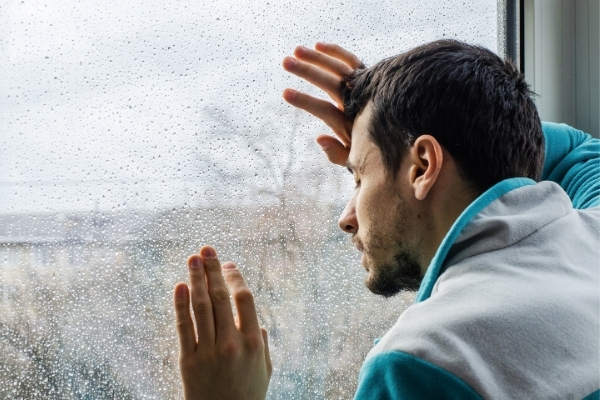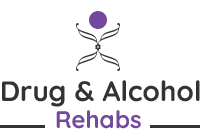The National Survey of Substance Abuse Treatment Services (N-SSATS) offered in the United States during 2019 from the Substance Abuse and Mental Health Services Administration reveals the types of drug and alcohol abuse treatment programs offered and most sought after during that year.
The survey also provides information on patient demographics and therapy needs. The 2019 data was reviewed by numerous private agencies, including a market and research investment group. The market researchers discovered from the N-SSATS 2019 survey that there are now approximately 14,000 substance use disorder treatment centers operating in the United States.
 More About Drug Treatment Programs in the US
More About Drug Treatment Programs in the US
Substance use disorder, also known as addiction, affects nearly 21 million Americans. The National Survey on Drug Use and Health (NSDUH), 2019, found that only 10% of the people diagnosed with a substance use disorder get the treatment they need. The most effective treatment types should also offer addiction rehab programs specific to the substance being abused. Many treatment centers in the United States now provide particular drug treatment programs.
They include drug rehabs near me that treat opioid use disorder, which treat addictions to heroin, fentanyl, prescription pain killers, and other opioids such as methadone or morphine. There are also substance use disorders treatment programs that provide customized treatment for methamphetamine addiction, cocaine addiction, benzodiazepine addiction, and alcohol use disorders, also referred to as alcoholism.
Dual diagnosis facilities also take care of co-occurring disorders, which means that if there are any underlying mental health conditions to take care of, you are covered. Mental health and addiction treatment go hand-in-hand, that’s why many facilities are dual diagnosis centers that focus not just on addiction, but also on co-occurring mental health disorders.
Prescription Opioid Epidemic Created a Need for Addiction Treatment
One explanation for the increase in substance-specific drug treatment programs that are now out there is the opioid crisis. Heroin addiction spiked during the mid to late 2000s due to overprescribing prescription pain killers like oxycontin from the 1990s. Once upper- and middle-class families began losing their young adult children to heroin and other opiates, government and private treatment centers sprouted up in nearly every state. Today the surge of treatment programs has initiated a positive awareness of how devastating and difficult it is to be addicted to any substance, not just heroin or opioids.
How Good Are Rehabs in the United States?
The Substance Abuse and Mental Health Services Administration offers the most up-to-date resources on drug and alcohol treatment types that are most effective. SAMHSA documents the signs of quality treatment on their website All of the centers we endorse meet the standards set by SAMHSA. The list of what makes up a quality rehab center to be capable of helping a person overcome their addiction highlights evidence-based therapy methods, to be state-regulated and licensed, as well as proving ongoing support for the individual after they leave treatment:
Signs of Quality Treatment from the Substance Abuse and Mental Health Services Administration:
- Licensed and accredited: The state licenses all facilities providing treatment.
- Medication: A facility should only use FDA-approved drugs in treating alcohol or opioid use. There are no FDA-approved medications to help prevent relapse from other problem substances.
- Evidence-based practices: Quality programs should offer a full range of services that are accepted as effective in treatment and recovery, including Motivational therapy, Cognitive behavioral therapy (CBT), Drug and alcohol counseling and education, Peer support, Care for or help to access care for other physical and mental health needs.
- Families: Family members should be included in the treatment process. They have an essential role in understanding the impact of addiction and being supportive in recovery.
- Support beyond substance use: For many, addiction is a chronic disease that needs ongoing support. A quality program treats the whole patient for the long term. This can include ongoing counseling or recovery coaching, and help meeting basic needs like sober housing, employment supports, and continued family involvement.
Once a person has become addicted to a drug or to alcohol, they will need professional help from a drug and alcohol treatment center to overcome their addiction. The first phase of treatment is medically supervised detox followed by a substance-specific treatment program. The treatment programs that are most effective that we advocate for providing evidence-based forms of therapy, behavioral therapies and pharmacotherapies, individual counseling, group counseling, holistic therapy, and other advanced substance use disorder treatment programs.
Find The Best Drug Rehab Centers Near Me
The treatment programs range in commitment time and structure. They are typically offered as an inpatient, residential, intensive outpatient, outpatient, extended care, sober living, and aftercare programs. All treatment programs are designed to help a person overcome cravings, increase self-esteem, build trust, and develop a stable community with other recovering addicts. Each drug and alcohol rehab program will also offer personalized treatment plans tailored to meet the needs of the individual. To locate a treatment program near you, connect with one of our specialists or reach out to one of the treatment centers directly in our database.
